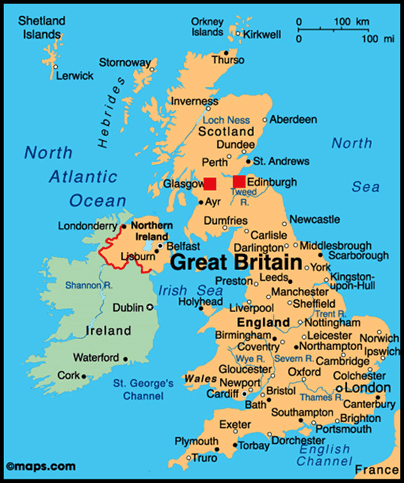What is the issue?
Tension over Northern Ireland’s border issues is hampering Brexit talks
What is the history of Ireland?

- Ireland is an island that lies to the west of the British mainland and has two separate politically independent territories.
- Northern Ireland which is about 1/6th of the total island is a part of the UK and is administered as a relatively autonomous region.
- The rest of the island forms the ‘Republic of Ireland’ and is an independent sovereign nation since 1922.
- Religious Tensions - The Republican Ireland has a predominantly catholic population of native Irish dissent.
- Contrarily, Northern Ireland has a Protestant majority of British dissent, with a significant Catholic minority of Irish dissent.
- Between 1960s and 1990s, Northern Ireland saw political tensions between pro-UK protestant unionist and Catholic nationalists.
- While the former had the backing of the government and were wealthy, the latter wanted to merge with the Republican South.
- After prolonged negotiations, the 1998 “Good Friday Agreement” ended tensions to a great extent.
What has been the island’s relationship with the EU?
- Economic Integration - Both the Republic of Ireland and UK (thereby Northern Ireland) became members of the “European Economic Community (EEC)” in 1973.
- EEC later evolved to become the EU and also to a great extent helped to ease the tensions between the Unionists & Nationalists.
- Currently, over 35,000 people and 6,000 trucks cross the border between the Republic of Ireland and Northern Ireland.
- Current Situation - As Britain is set to leave the EU, it will also be exiting the single market and customs union.
- Hence, the future relationship between Republican Ireland and Northern Ireland is currently a challenging puzzle to solve.
- The Irish question was brought up by some top politicians even before the Brexit Referendum but remains unresolved as yet.
- The political sensitivity around the Irish question could potentially lead to a resurgence of violence, if issues aren’t addressed in time.
What are the challenges ahead?
- The Irish Demand - Ireland’s case is currently being prioritised over all else in the Brexit negotiations.
- Irish PM Leo Varadkar has demanded a soft border that would facilitate unhindered trade, and EU has stood firm with him.
- The Problem - If Northern Ireland was to remain within the EU customs union (common market), an internal barrier between Northern Ireland and the British mainland would be required.
- But the unionist DUP (major party in Northern Ireland), has categorically opposed this.
- It has stated that it doesn’t want Northern Ireland to be seen as different from the rest of the U.K. in anyway.
- UK has hence said that the entire deal needs to be clear before any equations with the Republic of Ireland are worked out.
- Other Aspects - The tensions over Ireland have overshadowed progress on other issues of the Brexit deal.
- Notably, many of the issues were resolved after significant compromises by UK.
- The leave side in Brexit sought to position the process as a U.K.-centric to take back sovereign control.
- This hasn’t happened as concerns of other member-states have taken prominence with little room for Britain to negotiate.
Source: The Hindu
